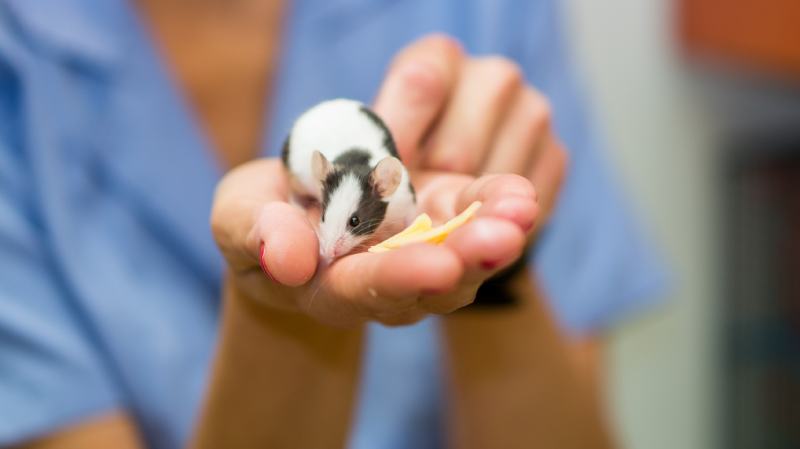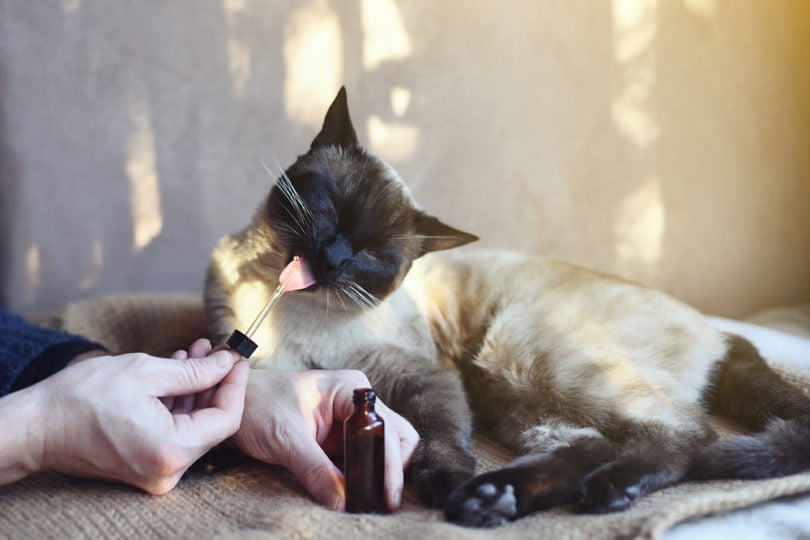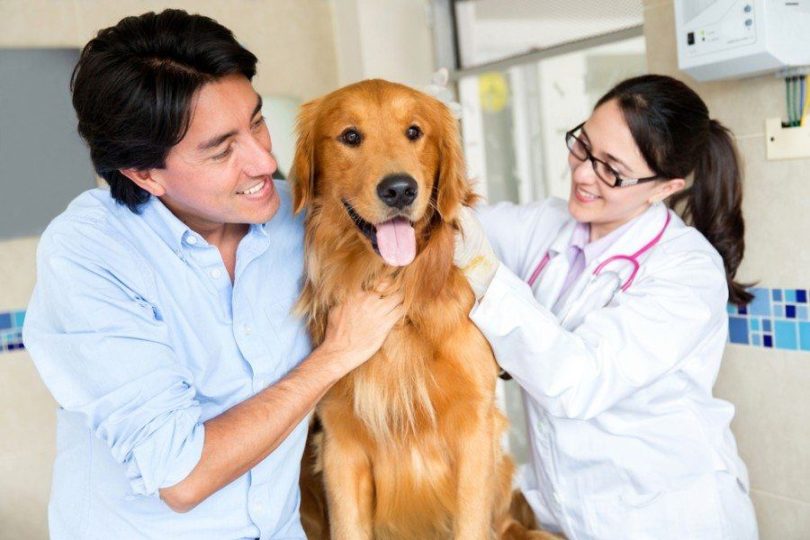VET APPROVED

The information is current and up-to-date in accordance with the latest veterinarian research.
Learn more »Click to Skip Ahead
Mice are small, fun, and cute pets. They are entertaining to watch and can enjoy being in the company of their human owners. Every mouse is different and while most prefer not to be held, many do at least tolerate being handled. If your mouse likes being petted, it will most likely enjoy being stroked around the back of the head, gently at the top of the nose.
Because mice are prey animals in the wild, and they naturally retain some of the instincts that keep them alive in a wild setting, they don’t like to be startled by their owners and may not like being petted around the bottom or on the back. Most mice do not like having their bellies tickled, either.
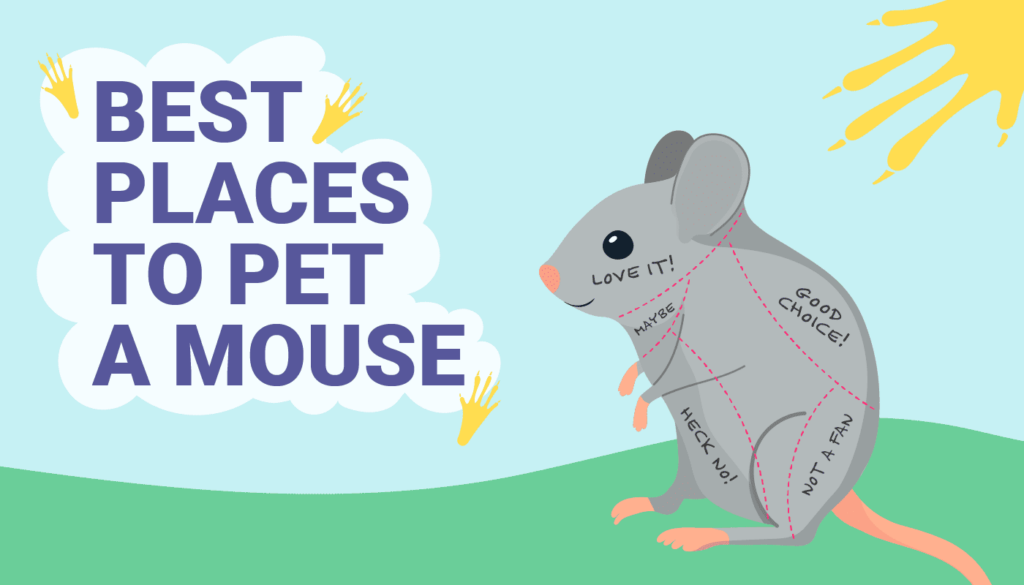

Mice In the Wild
Wild mice can be found in many countries across the world. They live in fields and grassland, and many live close to humans, making their homes in the walls and under the floors. They are omnivores; mice diet consists of a very wide variety of seeds, grains, other plant material and feedstuff of animal origin.
Mice are prey to a whole host of animals, primarily depending on the type of location where they live. Field mice are preyed on by birds, snakes, and a host of cats and dogs, including domesticated pets, for example. House mice have many of the same predators, as well as rats.
Mice As Pets
As is true of most prey animals, mice can be a little skittish even when kept as pets. They prefer the confines and safety of their enclosure to being handled, and they can get very nervous if they feel threatened. This means that you should try and give them a warning before bearing down on them. Many mice prefer not to be handled or petted, but they may enjoy sitting on your hand, especially if it contains a food-based treat, or perching on your shoulder.
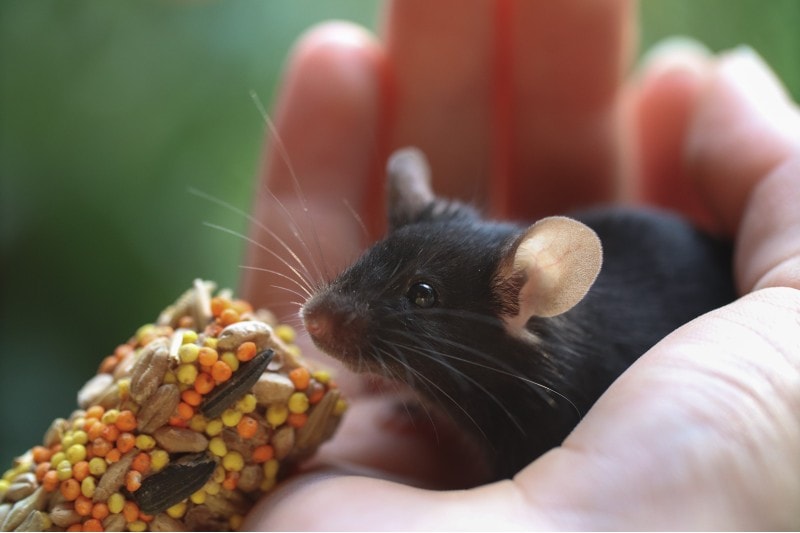

Spots To Pet Mice
Although a lot of mice don’t like being petted, some do. If you want to try petting your pet mouse, try gently rubbing the top of its head or at the top of its nose. Some mice may enjoy having their sides stroked, but you should try to avoid the bottom and belly areas.
Mice Handling Tips
Even if you don’t regularly handle your pet mice, there will come an occasion when you might need to pick them up. Follow these simple tips to help prevent injury and reduce stress in your mouse.
1. Don’t Scare Them
Try to avoid picking a mouse up when it is sleeping or if it doesn’t know you’re nearby. Speak to your mouse as you approach and if it is friendly, let it sniff your hand before reaching under to grab it.
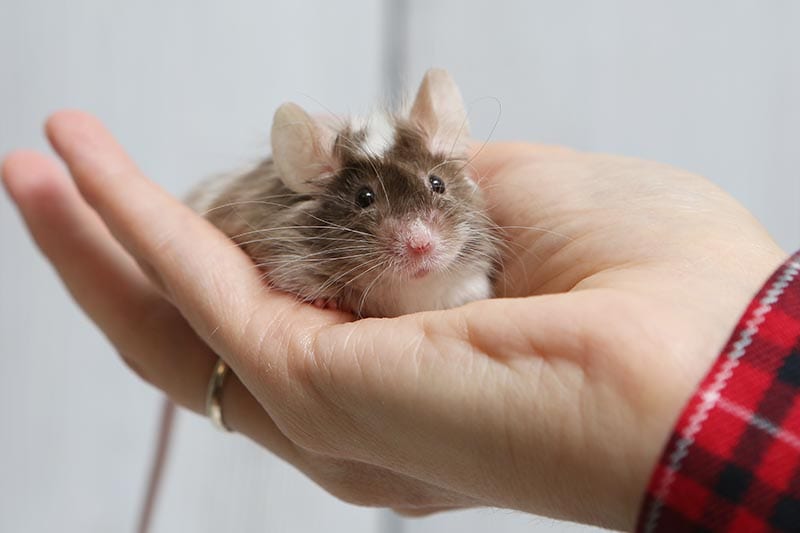
2. Be Very Gentle
Mice are tiny and it doesn’t take much to injure one when picking it up. If the mouse is large enough, you can pick it up with one hand, shaped like a claw, and place it under the mouse’s body. Otherwise, you should cup your hands together and scoop the mouse up.
3. Keep Your Hands Low
Once you have picked the mouse up, it is best to keep your hands low and ideally above a soft surface. If a mouse gets nervous, it might try running or jumping from your hand and this can easily cause injury. Better it gets away and you have to hunt for it under the sofa than it falls from your chest height.
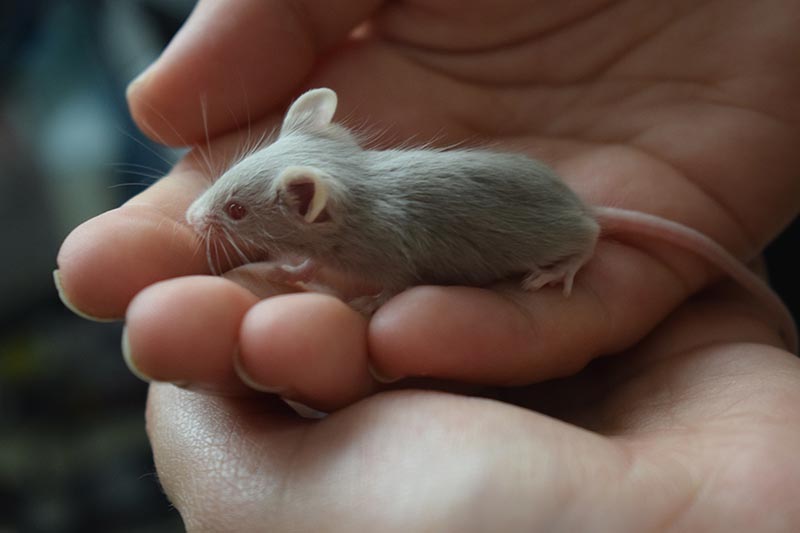
Do Mice Get Attached to Humans?
While mice do not necessarily enjoy being petted or stroked, that doesn’t mean that they aren’t affectionate and don’t enjoy the company of their human beings. Mice are social animals and they will form a close bond with other mice in their cage and potentially with you and other family members. Yours might like to be carried in your hands, perch on your shoulder, or rest in your top pocket. The more affection you show a mouse, the more it will return that affection.
Do Mice Recognize Their Owners?
Surprisingly, mice can recognize their owners as they approach. This is typically through their sense of smell. They can get excited when they see their favorite human approaching, making them great pets that can potentially lift the spirits of their owners.

Conclusion
Mice can make appealing pets. They are small and cute, and they have some interesting habits that make them a great addition to a home. However, most mice do not particularly enjoy being petted and may not enjoy being handled at all. If you want to pet your mouse, take it slowly, and concentrate your gentle petting on the top of the head and the top of the nose area. But, if the mouse flinches or backs away, don’t push it.
Related Reads:
- What Spots Do Pet Rats Like to Be Petted? (Guide With Infographic)
- What Spots Do Guinea Pigs Like to Be Petted? (Guide With Infographic)
Featured Image Credit:
